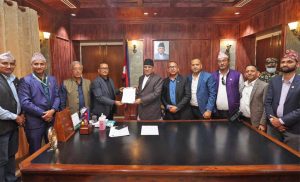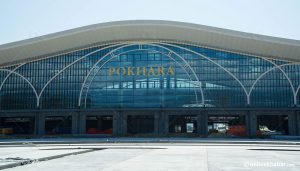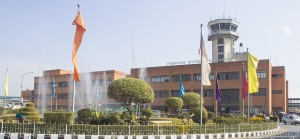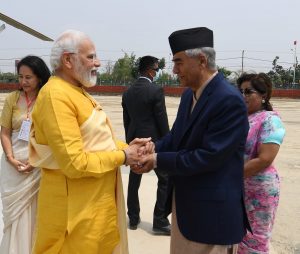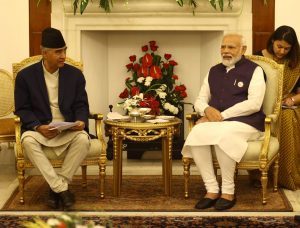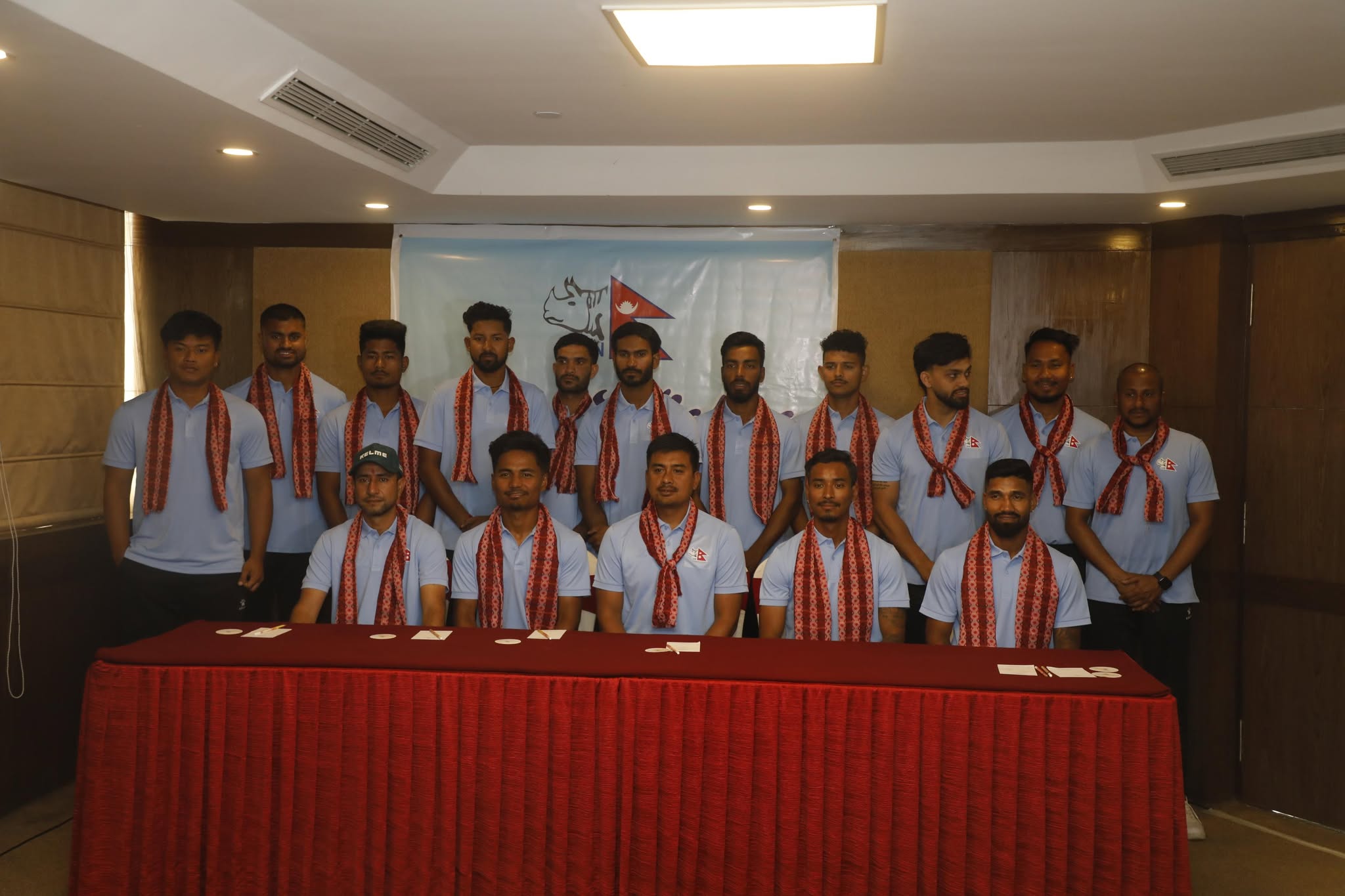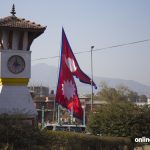
The commencement of flights by five international airlines at Bhairahawa’s Gautam Buddha International Airport has sparked hope among local businesses and residents of Rupandehi.
However, scepticism overshadows optimism due to the lack of essential services such as manpower offices, labour approval facilities, medical check-up centers, visa offices, and direct flights to Buddhist-majority countries. Additionally, concerns persist about the syndicate in air ticket sales dominated by Kathmandu-based agencies.
A promising start amid uncertainty
Since its inauguration on May 16, 2022, Gautam Buddha International Airport remained largely underutilised for two-and-a-half years due to irregular international flights. Recently, the airport has seen increased activity, with Qatar Airways and Fly Dubai operating daily flights, Nepal Airlines flying five times a week, Jazeera Airways three times, and Thai AirAsia twice a week. This amounts to 24 weekly flights.
Thai AirAsia and Jazeera Airways offer direct flights to Bhairahawa, while others use it as a transit point. The operations have revitalized local businesses and reignited interest in airport-related investments, such as hotels and restaurants.
However, scepticism looms. Local entrepreneurs fear the flights may cease once Kathmandu’s Tribhuvan International Airport completes its ongoing maintenance. Concerns about poor visibility during winter fog—requiring 1,800 meters of visibility for flights—further add to the uncertainty.
Although the airport is equipped with an Instrumental Landing System (ILS) to enable operations in low visibility, it remains non-operational due to objections from Indian authorities over airspace issues. As an alternative, General Manager Pratap Babu Tiwari mentioned plans to implement the Required Navigation Performance Authorization Required (RNP AR) system to address visibility challenges.

Demand for essential facilities and services
Private investors have invested nearly Rs 100 billion in tourism infrastructure around Bhairahawa, including hotels and restaurants, with hopes of long-term airport operations. To ensure sustainability, local businesses have urged the government to establish essential services such as labour approval offices, medical check-up centres, visa processing facilities, cargo services, and No Objection Certificate (NOC) offices for students going abroad.
Labour approval renewal is available online, but first-time approvals, medical tests, and other services still require a trip to Kathmandu, inconveniencing workers and businesses alike.
Syndicate in air ticket sales
The dominance of Kathmandu-based travel agencies in international ticket sales has created further distrust among local businesses. According to Chandra Thapa, President of the Nepal Association of Tour and Travel Agents (NATTA) Lumbini, a cartel among Kathmandu agencies manipulates prices, making tickets from Bhairahawa more expensive despite the absence of landing and parking fees.
“Only 4–6% of tickets are allocated to Bhairahawa due to this cartel,” Thapa complained, adding that bulk sales by Kathmandu agencies leave little room for local businesses. He urged authorities to monitor and curb unfair practices in ticketing.
Concerns over infrastructure
Thakur Kumar Shrestha, President of the Siddharthanagar Chamber of Commerce and Industry, emphasised the urgent need for Bhairahawa to host all essential offices at full capacity, similar to Tribhuvan International Airport.
“Passengers are not attracted because Bhairahawa lacks offices for labour approval, medical tests, and visa services,” Shrestha said. Although a labour office was set up following the airport’s inauguration, it has remained largely non-functional.
Shrestha also pointed out that the airport’s cargo facility should be immediately operational to support businesses.
Direct flights to Buddhist-majority countries
Travel entrepreneur Sagar Adhikari highlighted the importance of direct flights from Buddhist-majority countries to Bhairahawa. Currently, only Thai AirAsia and Jazeera Airways offer direct flights, while others use Bhairahawa as a transit hub.
“Countries like China, Vietnam, Myanmar, Sri Lanka, Bhutan, and Japan should be targeted for direct flights to attract Buddhist tourists to Lumbini,” Adhikari suggested. He noted that most current passengers are returning migrant workers, which alone cannot sustain airport-related businesses.
Ticketing restrictions and accessibility issues
Tourism entrepreneur Sanjay Bajimaya criticized the absence of ticket counters for most airlines at Bhairahawa Airport. While Nepal Airlines and Jazeera Airways offer convenient ticketing, other airlines have restricted access to booking portals, forcing customers to rely on Kathmandu-based agencies.
“This lack of access to two-way ticket sales is a major hindrance,” Bajimaya said. He warned that such practices could jeopardize the airport’s sustainability.
Bajimaya also called for improvements at the Belhiya immigration office, which he said lacks modern technology and sufficient staffing, causing inconvenience for tourists.
Road connectivity and promotion
Leaders in the hotel and restaurant sector emphasized the importance of road connectivity in ensuring the airport’s long-term success. Lekhnath Bhandari, President of the Hotel and Restaurant Entrepreneurs’ Association of Rupandehi, suggested that roads connecting Lumbini, Karnali, and Sudurpaschim provinces to Bhairahawa be improved to reduce travel hassles.
“Travelers should not have to switch vehicles multiple times to reach Bhairahawa. Private companies could also provide direct bus services for convenience,” Bhandari proposed.
He further suggested offering discounts of at least 25% on food and accommodation for passengers flying via Bhairahawa to attract more travellers.
The way forward
General Manager Tiwari stated that no major issues are impeding regular international flights at the airport. “Most services, including labour approvals and medical tests, are now available locally,” he said.
While some air routes could be optimized, Tiwari assured that low-visibility landing systems are already in place, awaiting final tests.
He called on the private sector to promote Bhairahawa as a destination, ensuring sufficient passenger flow and tourist attractions. “Sustained operations require joint efforts from the government and private sector,” Tiwari emphasized.
Attracting more passengers through discounts and lobbying airlines for concessions could help maintain consistent operations, he added.
Despite the promising start, Bhairahawa’s Gautam Buddha International Airport faces several challenges, including limited facilities, syndicates in ticket sales, and insufficient direct international connections. Addressing these issues through government intervention, private sector initiatives, and targeted promotion is essential to realize the airport’s full potential as a regional aviation hub.




